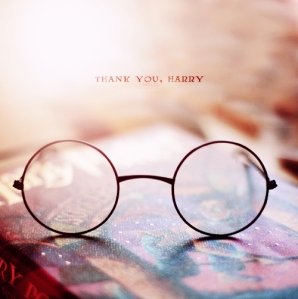
DASH AND LILY’S BOOK OF DARES by David Levithan and Rachel Cohn
Published October 26th, 2010 by Knopf Books for Young Readers
272 Pages
With Christmas just around the corner, this seemed like an appropriate choice for a book recommendation. I read it about two weeks ago, and I haven’t been able to stop thinking about it. In fact, I’ve already convinced three of my friends to read it, and lent it to a fourth.
There’s something magical about Christmas, and I think this book hits it right on the head. Christmas is full of endless possibilities. People are nicer, the world is brighter, and smiles are out in droves. Everything is over-the-top, from decorations to the amount of food we eat and the music we listen to. But nobody cares because it’s the holidays. Personally, Christmas is my absolute favorite time of year. How can you not be in a good mood?!
That warm, fuzzy feeling you get around the holidays is something you get while reading this book. And I don’t think it matters what time of year you read it — the feeling will still be there.
But! More about the book and less about my love for Christmas.
First of all, I think the plot is one of the most creative plots I’ve seen in a while. Sticking a red moleskine on a shelf in the Strand with clues that could maybe lead to romance is an amazing idea. The fact that Lily’s brother did it to keep her out of his hair is even better. (Also, I will freely admit to having gone to the Strand since reading this and checking to see if someone had dared to replicate the moleskine idea.) Everything was woven together so well, and those clues! Part of me wonders if I would’ve been able to decipher them, had it been me. The creativity that went into this is mind-blowing.
Also, collaborations can be tricky. I’ve seen plenty of submissions where the two authors’ styles just didn’t mesh. It was obvious who was writing for which character, and the flow was awkward because of it. David Levithan and Rachel Cohn’s voices blend seamlessly together. Even with each of them writing a different character, you’re never once pulled from the story because things don’t work well together. The pair also wrote NICK AND NORAH’S INFINITE PLAYLIST and NAOMI AND ELY’S NO LIST KISS, neither of which I’ve read, but both of which I intend to pick up.
Dash and Lily were fantastic characters. Dash is a little pretentious, but is still one of the most likable guys I’ve come across in fiction. Boomer is hilarious, and I can’t imagine the book without him. Lily’s cooky family made me wish they were a part of my own, and as a main character, I thought Lily was great. She’s so naive, and it’s fun to watch her get out and test the waters when her parents are gone. I don’t know if I’d be brave enough to go to some skeezy underground club on Christmas eve (By myself. In New York.), so she gets major props for that.
Now that I live in New York, the book had an extra ounce of charm because I knew where things were located. The Strand was one of the very first places I visited when I moved here, and I still pay homage at least once a month. Even if I don’t buy anything, it’s nice to be surrounded by that many books. (Supposedly there are 18 miles of books in that store. I want to know what kind of math they used to figure that out…) I’ve also made an effort to locate the rest of the places mentioned in the book. When a book motivates you that much, I feel like it has to be good.
So, if you’re in need of some extra holiday cheer (or just enjoy overdosing on Christmas), you need to get a copy of this book. I promise you’ll be smiling like an idiot by the time you’re done, and it’ll take a while before it wears off.
~~~
Continuing the tradition of building up suspense for our Super Awesome Super Exciting News, we’ve also got another giveaway! You can leave a comment below for a chance to win a copy of Aya Tsintziras’s debut novel, PRETTY BONES.

Raine has a family, good grades, best friends, and a boyfriend who loves her. But then anorexia takes over, and her life spirals out of control. Her efforts to hide her condition are finished when she collapses at a school dance. Although she’s whisked away to treatment, Raine isn’t ready to accept who she really is and get the help she desperately needs. For Raine, coming-of-age means coming closer to death.
Sooz will be announcing the winner on Wednesday. Stay tuned for the rest of our giveaways!












 LTWF Facebook
LTWF Facebook LTWF Twitter
LTWF Twitter